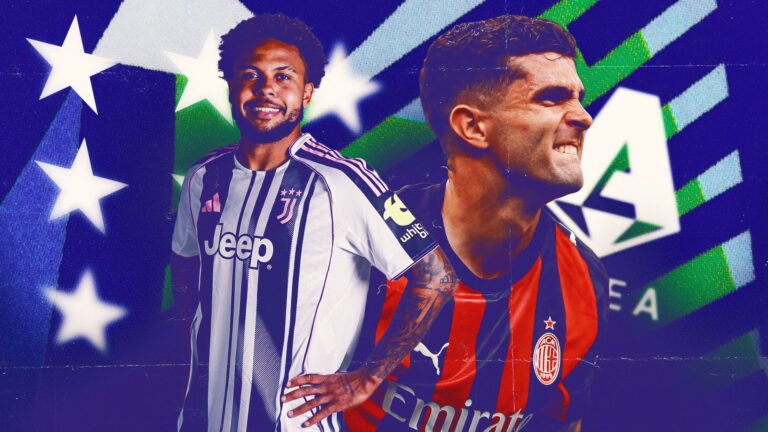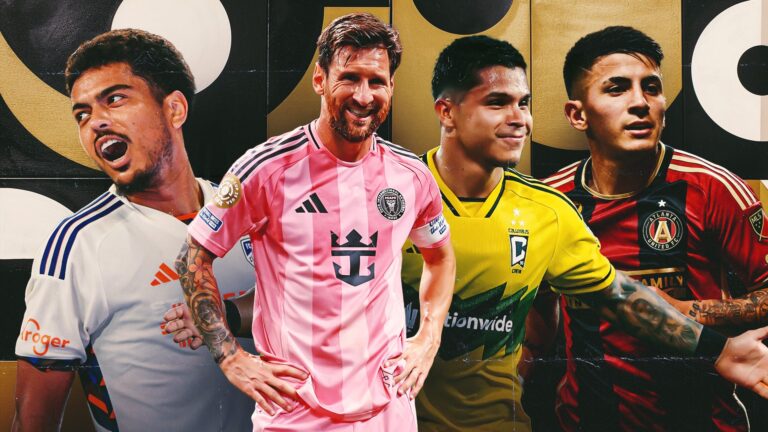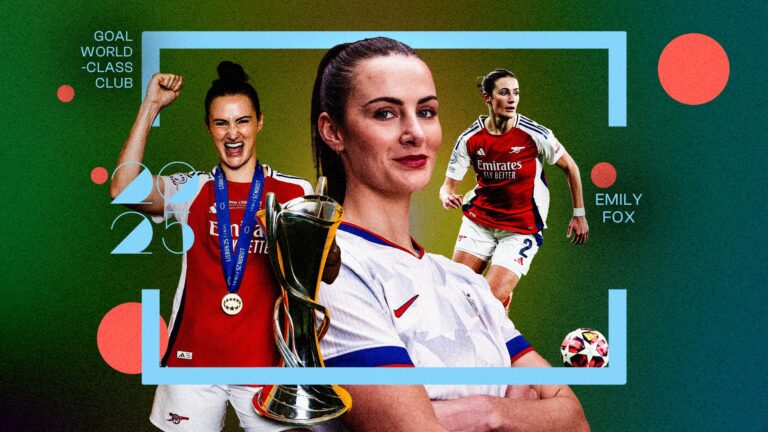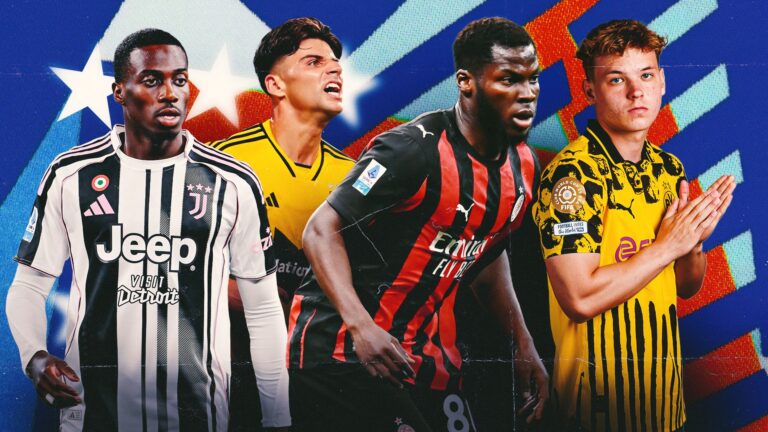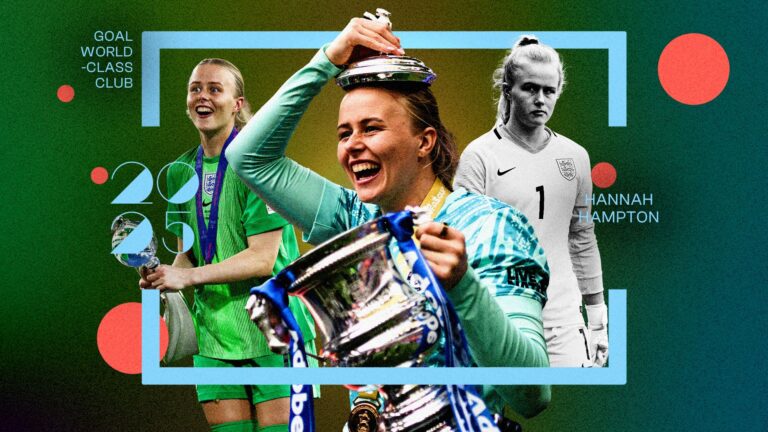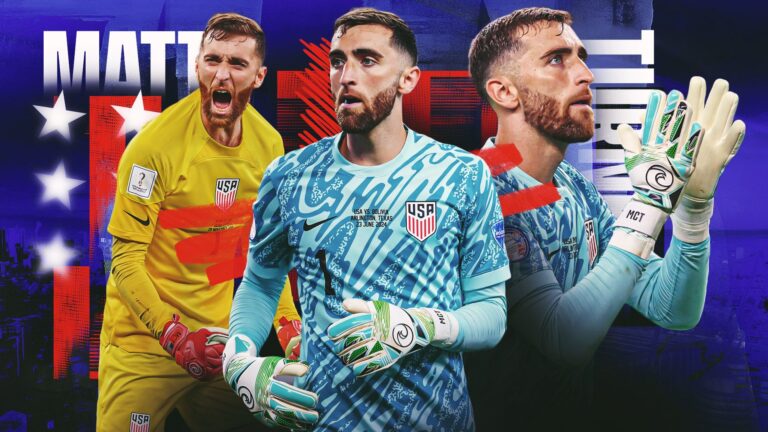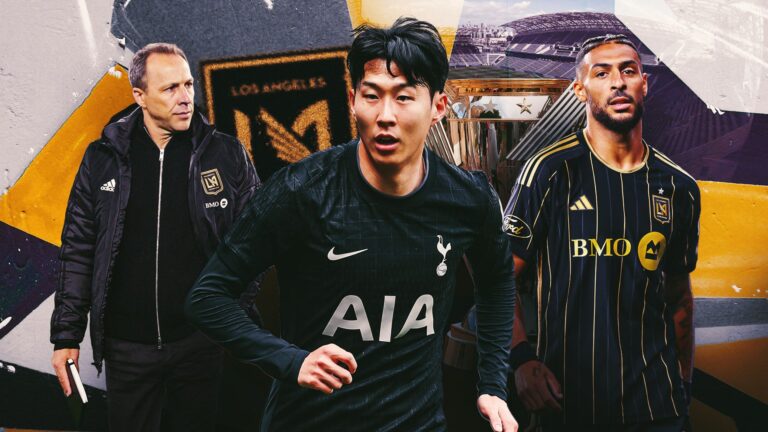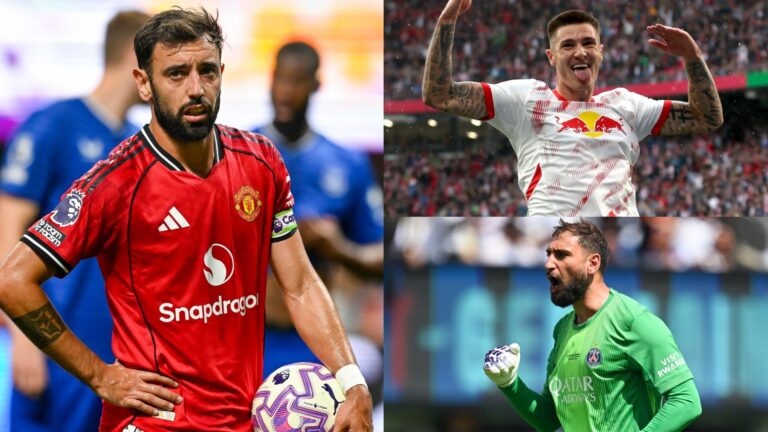If you didn’t think that Inter Miami could pull off the Rodrigo De Paul signing you haven’t been paying attention. In Major League Soccer‘s long history, and Inter Miami’s short one, there has always been room for gaming the system.
We’re not talking breaking the rules as much as next-level creativity to dance around MLS salary cap regulations.
Miami used every ounce of cleverness to get De Paul in and, ultimately, they got their guy. Lionel Messi’s famous "bodyguard" has arrived in South Beach, giving Miami the bulldog in the midfield they so sorely lacked. He joins a Herons team filled with starpower, including the rest of the ex-Barcelona quartet and several other high-priced acquisitions made since Messi himself aligned himself with Inter Miami.
By strict interpretation of MLS rules, none of this, in theory, should be possible. Teams are limited in terms of salary spend and Designated Players. But Inter Miami have just added another World Cup winner to a roster that includes Messi, Luis Suarez, Sergio Busquets and Jordi Alba. De Paul is a legitimately world-class midfielder.
So how in the world did the Miami land him while stilly complying with MLS rules?
The answer, again, is in large part, creativity. But Miami, as a club, also have a gravitational pull, and the Herons are using that magnetism to make moves other clubs could only dream of. They aren’t the first club to do it, either. Miami co-owner David Beckham, in many ways, started this trend and is now the one benefiting most from flexing big-market muscles.
Miami continue to flex. Having Messi in the squad allows you to do that.
Can everyone pull off what Miami just did? Perhaps not. Can other clubs in MLS find their own clever solutions? Of course. MLS roster building is a craft, and Miami should get credit for working the system to make another game-changing signing.






If you didn’t think that Inter Miami could pull off the Rodrigo De Paul signing, you haven’t been paying attention. In Major League Soccer’s long history, and Inter Miami’s short one, there has always been room for gaming the system.
We’re not talking breaking the rules as much as next-level creativity to dance around MLS salary cap regulations.
Miami used every ounce of cleverness to get De Paul in and, ultimately, they got their guy. Lionel Messi’s famous “bodyguard” has arrived in South Beach, giving Miami the bulldog in the midfield they so sorely lacked. He joins a Herons team filled with starpower, including the rest of the ex-Barcelona quartet and several other high-priced acquisitions made since Messi himself aligned himself with Inter Miami.
By strict interpretation of MLS rules, none of this, in theory, should be possible. Teams are limited in terms of salary spend and Designated Players. But Inter Miami have just added another World Cup winner to a roster that includes Messi, Luis Suarez, Sergio Busquets and Jordi Alba. De Paul is a legitimately world-class midfielder.
So how in the world did the Miami land him while stilly complying with MLS rules?
The answer, again, is in large part, creativity. But Miami, as a club, also have a gravitational pull, and the Herons are using that magnetism to make moves other clubs could only dream of. They aren’t the first club to do it, either. Miami co-owner David Beckham, in many ways, started this trend and is now the one benefiting most from flexing big-market muscles.
Miami continue to flex. Having Messi in the squad allows you to do that.
Can everyone pull off what Miami just did? Perhaps not. Can other clubs in MLS find their own clever solutions? Of course. MLS roster building is a craft, and Miami should get credit for working the system to make another game-changing signing.
Every team in MLS must be compliant with the league’s salary cap rules. It’s a complex system, one that features a variety of mechanisms for clubs to piece their squads together. Ultimately, at the very top, a team can have three Designated Players. Miami have Messi, Alba and Busquets.
So what happens when another DP-quality player wants in? Well, this. Everyone involved finds a way to make it work.
According to ESPN, it was De Paul, not Inter Miami, who made initial contact. Mulling over his future amid a likely Atletico Madrid exit, the Argentina international made contact with the Herons, expressing his interest in playing with his longtime Argentina teammate. Miami, of course, were interested, but would need to find a way to fit De Paul into the team.
Cue the creativity.
De Paul will not be a Designated Player this year, having signed on an initial loan deal from Atleti. To facilitate that, the club has triggered a one-year extension in his contract while giving Miami an optional purchase clause of around $17 million. According to GiveMeSport, the key word there is “optional.”
The fact that there is no guarantee means that De Paul can be paid a salary under the DP threshold, a massive paycut for the midfielder to take to play with Messi. He’ll almost certainly make good money on the backend when/if the deal becomes permanent. But, again, optional. If that does happen, De Paul will be able to slide into the DP spot that will open up when Busquets’ contract expires after this season.
“It’s a historic addition for this club – one more,” Miami coach Javier Mascherano said. “A world champion, he is in the prime of his abilities, and it shows the ambition of this club to continue to grow… I’m very happy with his addition, and I hope he helps us like we think he’s going to help us. And we wish him the best on this stage.”
That “help” didn’t arrive without a deep understanding of – and in some ways, manipulation of – the salary cap, and a strong desire between the parties. It’s the pull of Miami. And this wasn’t the first time the club took an ambitious swing.
Since the club’s inception, Inter Miami has been bold. Led by David Beckham and the Mas brothers, Jorge and Jose, the Herons have always made it known that they want to pursue the very best. It’s how they ended up with Messi, of course.
Even before Messi, though, Miami did what it took to try and build a strong roster, even if it didn’t quite come together in the pre-Messi years. In 2021, Miami were found in violation of roster rules during their initial 2020 season, having signed two DPs more than the maximum.
The club had Blause Matuidi, Andres Reyes, Leandro Gonzalez Pirez, Nicolas Figal and Julian Carranza on the books, and were found to have misled the league on their compensation. As a result, they were hit with a league-record fine of $2 million and hamstrung by salary cap restrictions going forward. As a result, the club’s initial years were lean, with little tangible success until a certain Argentine landed on their doorstep in the summer of 2023.
Messi’s signing, and the signing of his Barcelona buddies, were not exceptions. They marked the continuation of a process that began when the team was formed. This is a club that has shown it will do whatever it takes to win, something that is refreshing to many that follow an MLS built on and defined by parity and rules
“I love that Inter Miami and Jorge Mas and David Beckham and those, they want to push the envelope,” former USMNT and MLS star Alexi Lalas said on his State of the Union podcast. “They want to do big things and they should be given the ability to do that, Yes, within the rules. But what I don’t want to happen is that they are hampered or held back by their aspirations. There’s nothing stopping you, whatever team it is – Columbus or Colorado or anybody else out there – from thinking big and doing big.
“Yes, there is an attraction to Messi. Yes, there is an attraction to some place like Miami that maybe other other teams don’t have. But if you want to spend big money and you want to do big, bold – dare I say it? – arrogant things, I will support you, 100 percent.”
Mas gets plenty of credit, but so too should the legendary midfielder often sitting alongside him. He’s the man that made MLS rewrite the rulebook, after all.
Beckham, of course, is the original DP and the league’s biggest game-changer. He came to the U.S. in 2007, at the height of his powers, joining a Galaxy team that couldn’t offer him anywhere near the money that he could get in Europe. The thing was, MLS and the Galaxy could offer him something more.
WIth Beckham’s arrival, the DP rule was invented, allowing teams to bring in high-profile signings in a way that would fit into the salary cap structure. As part of the contract, the league got creative. They gave him the option of buying the rights to an expansion franchise in the market of his choosing for just $25 million. That franchise, of course, became Inter Miami.
Two years before Inter Miami’s was formed, LAFC paid an expansion fee of $110 million. At the time of Miami’s arrival, Nashville paid $150 million. In 2023, San Diego became the league’s most recent team behind a $500 million fee. It was that fee, then, not the salary itself, that was Beckham’s real win. That was the real dream: the life after soccer with a team of Beckham’s own.
So, when it came time for Beckham to own that team, he was no stranger to MLS. He was also no stranger to what it took to work around MLS rules. The deal to sign Messi required a great amount of league cooperation, just as the deal to bring him to the MLS did all those years ago.
Let Beckham serve as a reminder, though, that Miami aren’t the only team that have pulled off this type of signing. It’s been going on long before the South Beach club turned their dream into a reality.
Beckham was the most notable example of the Galaxy benefitting from the attraction of Los Angeles. He wasn’t the only one. For years, the Galaxy brought in megastars, signing the likes of Robbie Keane, Steven Gerrard and Zlatan Ibrahimovic.
The Swedish star’s signing, of course, came with its own discourse after he played his first season thanks to the use of Targeted Allocation Money. His contract was, ultimately, backloaded, making it up to him in the end in a way that seemingly set the table for the De Paul deal.
The Galaxy were the first beneficiary of TAM, too, as they used it to re-sign Omar Gonzalez all the way back in 2015, just as it was announced as a mechanism. Cristian Pavon’s signing resulted in sanctions, while Nigel de Jong is another name to add to the list of guys who were jammed into the MLS salary cap structure.
Their crosstown rivals, LAFC, also pulled off a coup, earning a MLS Cup in the process. When the club signed Gareth Bale in the summer of 2022, they did so on a TAM deal that reportedly paid him just $1.3 million. Bale, in the end, arrived, won an MLS Cup and retired, cementing legendary status for LAFC on what ended up being a an inexpensive deal.
What Miami has done is not new. And De Paul is nowhere the biggest name. But Miami still made it happen.
“I love every second of Miami pushing the boundaries of the MLS salary cap and roster rules,” Apple TV analyst and former MLS star Taylor Twellman said on social media, “because that means others can do the same if they please.”
Twellman was instantly hit with a barrage of backlash. Not every team has the draw of Miami, and no other team has the pull of Messi. For De Paul to arrive in MLS, it required a perfect storm, one that could only form in South Beach. That’s true.
But that’s not a MLS restriction – it’s a lifestyle choice for players. And it just means that teams in other markets might have to work a little harder to get an edge.
The Philadelphia Union, for example, can pump millions of dollars into their academy, allowing the club to produce, not buy, young talent. Atlanta United, in their early years, hired Gerardo “Tata” Martino, knowing that the ex-Barcelona and Argentina boss would be a vital recruiting tool, as well as manager.
Clubs such as the New York Red Bulls and NYCFC are owned by the same megaclubs overseas. And while they haven’t used those relationships as much as many would like, those are the types of relationships that can lead to advantageous loans, player sales and scouting networks.
All of that is to say that every team is capable of creating their own advantage. Yes, some markets are their own disadvantage from a location standpoint – which is true in all other American sports. Yes, salary cap spending is limited by the league, but there’s no limit to what a team can spend on academies, coaches or front offices.
There are always ways to improve a team, and not all of them are direct. As Twellman said, teams should be hunting for those advantages, not begrudging Miami for capitalizing on theirs.
De Paul is the latest, but he won’t be the last. As long as MLS has a salary cap structure – and even if the league didn’t – there will always be teams willing to cleverly circumvent the rules. The signing, then, is a challenge, both on the field and off of it, as Miami continue to push the boundaries of what teams can do in MLS.


